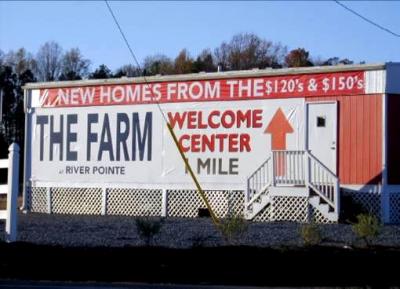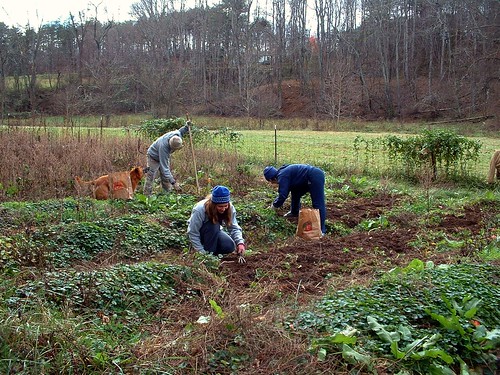
We're losing an acre of farmland every minute, but smart growth may be slowing the rate

41 million acres of rural land has been permanently lost in the last 25 years to highways, shopping malls, poorly planned sprawl and other development, according to a new analysis by the American Farmland Trust. Of that amount, 23 million acres (an area the size of Indiana) was agricultural land. The rate of recent farmland loss has been an astounding acre per minute.
There has been a resurgence of interest across the country in fresh, healthy, locally grown food. But the farms that supply local food, those closest to our urban areas, are the most vulnerable and tend to be lost the fastest. Moreover, farmland close to the urban/suburban edge is frequently our most productive for supplying food on the tables of American families:
"America’s cities sprang up where the land was the richest. Today, the farms closest to our urban areas produce an astounding 91% of our fruit and 78% of our vegetables, but they remain the most threatened. In addition, many of these at-risk, urban-edge farms are the ones growing fresh food for farmers markets, CSA’s [community-supported agriculture services] and other direct-to-consumer outlets. And our prime agricultural land – the farmland that has the ideal combination of good soils, climate and growing conditions – are being converted at a disproportionately higher rate."
AFT stresses that “smart growth strategies, including more efficient development, can help slow the conversion and fragmentation of our farm and ranch land.” At the same time, strategies such as agricultural conservation easements and transfer of development rights programs should be employed to protect tracts of farmland in perpetuity.

The Farmland Trust’s analysis is based on the latest data from the National Resources Inventory, developed by the US Department of Agriculture’s Natural Resources Conservation Service in cooperation with Iowa State University’s Center for Survey Statistics and Methodology. The NRI tracks all changes in land cover and use on non-federal land.
There is a bit of good news in the data: The rate of farmland loss slowed significantly from 2002-2007, compared to the previous five-year period. (Coincidentally, so did driving rates.) In particular, "only" 4.0 million acres were lost from 2002-2007, while 5.1 million were lost from 1997-2002. Those were all pre-recession years when the real estate economy had not yet collapsed. This indicates that smart growth policies and practices are starting to have a measurable effect as a greater portion of our land development has shifted back to urban sites and more efficient use of suburban ones.
States losing the most agricultural land from 1982 to 2007 include Texas, California, Florida, Arizona and North Carolina. Texas lost the most, some 2.9 million acres, during that period. New Jersey lost the largest portion of its agricultural land inventory, an amazing 27 percent, during that period. The Farmland Information Center, a clearinghouse maintained jointly by AFT and the Natural Resources Conservation Service, has full data on every state.
Cross-posted from my blog on NRDC’s Switchboard, where I write (almost) daily about community, development, and the environment. For more posts, see my blog's home page.


Comments
Write your comments in the box below and share on your Facebook!